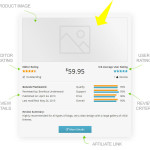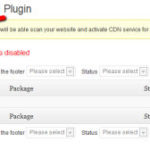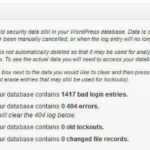These days, it’s good to be a freelancer. With how many blogs are floating around the internet, web developers are in constant need of writers. Blogs have become one of the largest sectors of online traffic, and companies are very aware of this fact. From large corporations to small startup businesses –chances are, they run some kind of a blog.
Blogs generate traffic, because they can attract attention from search engine crawlers in ways that simple websites cannot. Consumers flock to blogs as a source of news, product information, reviews, and updates. This is why developers have turned to the guest-posting freelancer to give their blogs professional, well-written credibility. It’s a system that is simply working very, very well.
WordPress & Processing Payments?
Since roughly 20% of all blogs are powered by WordPress, it makes sense to have a tool that can coordinate assignments and payments. This certainly would make sense, but for some reason, this kind of a convenient plugin just hasn’t become available. That is, until now.
Ebyline, a utility that connects freelancers with clients, has actually crafted a plugin that coordinates payments directly from WordPress. Through this plugin, the site’s admin can keep track of payroll from the dashboard.
Ebyline Payment Plugin Basics
The features of the plugin are fairly straightforward. Basically, the plugin will add two more columns in the WordPress dashboard after the ‘Date’: ‘Fee’ and ‘Status’. These features allow the site’s admin to keep track of how much the freelancer is charging per post under the ‘Fee’ column; and it allows the admin to see if they’ve paid the writer under the ‘Status’ column. It’s a simple solution, to what was once a rather complex problem.
How the admin can setup the guest post is through the Ebyline payment widget on the right side of the dashboard. From there, the admin can fill in the field with the agreed payment amount, and the assignment is created.
All that’s left is for the admin to ‘Quick Edit’ the post, assign the writer, and the job is underway. Once everything is finished –the post is written and the article has gone live– then the admin can hit ‘Pay Now’, and the payment is sent.
Here’s a quick presentation of EbyLine
The 8%
With this plugin, Ebyline will take 8% of the payment. While some may see this, as somewhat of a steep charge, others are willing to fork over the added cost for the benefit of convenience that the plugin provides. However, this will depend on the blog and the complexity of its coordination.
For instance, if the blog has 2 total contributors, and it sees about 3 posts per week, this plugin may not necessarily be crucial. The whole point of this plugin is increased convenience in payment and post coordination.
However, if the blog has 12 contributors, and publishes 10 posts per day, it may be worthwhile to use the plugin. In addition to the convenience of coordinating payments, Ebyline also provides added tax and accounting features.
For instance, the widget will track payment history and automatically issue 1099’s to freelance writers for tax purposes (without the site admin having to send them out manually).
Also, all payments are encrypted, providing overbuilt security to keep the admin and freelancers safe from attacks.
For 8%, there are quite a few features that could make this an enticing deal.
Conclusion
The Ebyline Payments plugin makes for a nearly ‘seamless’ way to pay freelancers while the admin coordinates posts.
While, it can be argued that PayPal will basically have all of these same features, the difference is simple. Ebyline Payments provides a way that the admin can keep track of a single payment platform, rather than dealing with several databases, apps, or sites. In addition, the added convenience of automatically issuing 1099’s to keep up with taxes is a feature that can make life easier.
The added security is certainly a nice feature, but this is provided by basically any company or tool that coordinates and issues payments. Frankly, if Ebyline did not encrypt their payments, then this would set them way back. Any tool like this must have a secure payment structure.
Perhaps the only reason why an admin would not use the Ebyline Payments plugin is because the need for coordination does not justify the 8% charge. These are most likely blogs that are not currently operating with many freelancers.
For more active blogs, which experience higher levels of traffic, the Ebyline Payment plugin might just fit the bill. It’s astounding simplicity, post coordination capabilities, and quick payment options are excellent for admins, who are managing several writers. In this case, the 8% charge might just be worth it. Unless there is another option that coordinates posts and payments directly from WordPress, the Ebyline Payment plugin is the ideal payroll platform.









Comments are closed.